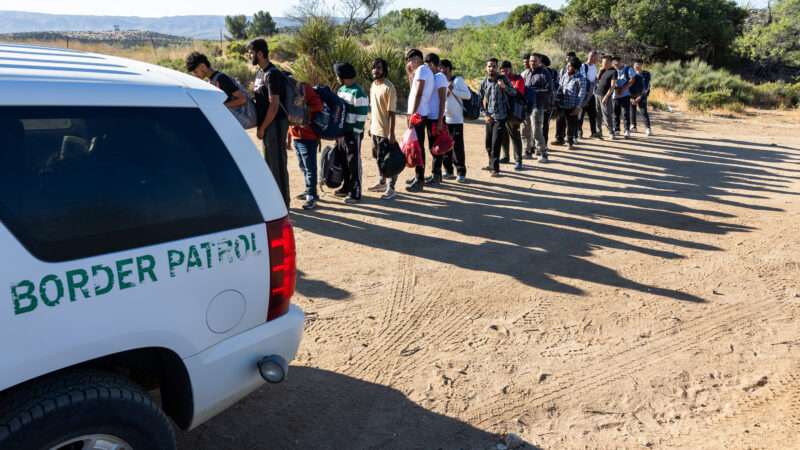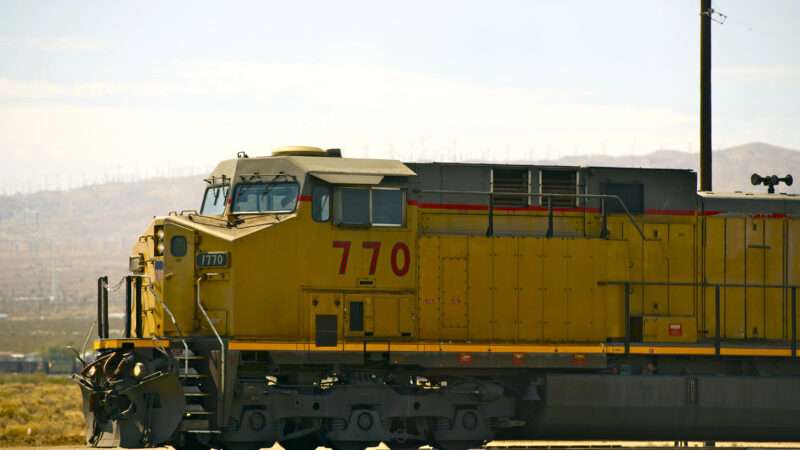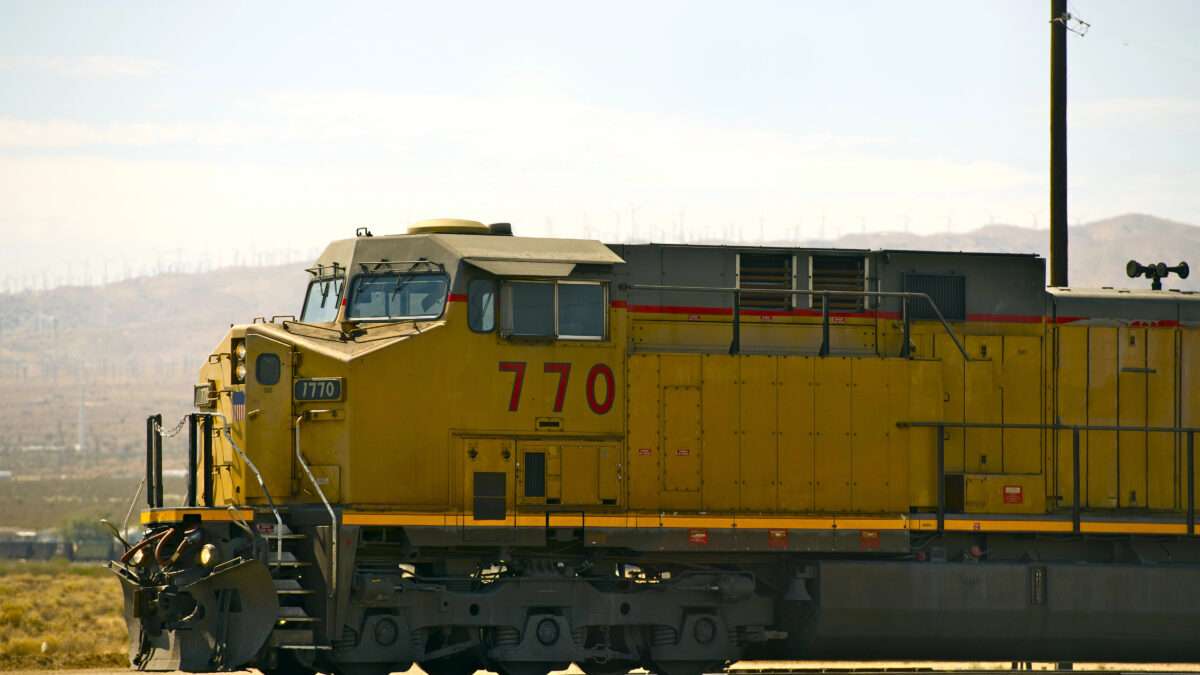Partisan Border Wars

In this week's The Reason Roundtable, editors Matt Welch, Katherine Mangu-Ward, Nick Gillespie, and Peter Suderman scrutinize President Joe Biden's executive order updating asylum restrictions at the U.S.-Mexico border in response to illegal border crossings.
01:32—Biden's new asylum restrictions
21:38—The prosecution of political opponents: former President Donald Trump, Hunter Biden, and Steve Bannon
33:25—Weekly Listener Question
39:56—No one is reading The Washington Post
48:09—This week's cultural recommendations
Mentioned in this podcast:
"Biden Announces Sweeping Asylum Restrictions at U.S.-Mexico Border" by Fiona Harrigan
"Biden's New Asylum Policy is Both Harmful and Illegal" by Ilya Somin
"Travel Ban, Redux" by Josh Blackman
"Immigration Fueled America's Stunning Cricket Upset Over Pakistan" by Eric Boehm
"Libertarian Candidate Chase Oliver Wants To Bring Back 'Ellis Island Style' Immigration Processing" by Fiona Harrigan
"Donald Trump and Hunter Biden Face the Illogical Consequences of an Arbitrary Gun Law" by Jacob Sullum
"Hunter Biden's Trial Highlights a Widely Flouted, Haphazardly Enforced, and Constitutionally Dubious Gun Law" by Jacob Sullum
"Hunter Biden's Multiplying Charges Exemplify a Profound Threat to Trial by Jury" by Jacob Sullum
"The Conviction Effect" by Liz Wolfe
"Laurence Tribe Bizarrely Claims Trump Won the 2016 Election by Falsifying Business Records in 2017" by Jacob Sullum
"A Jumble of Legal Theories Failed To Give Trump 'Fair Notice' of the New York Charges Against Him" by Jacob Sullum
"Does Donald Trump's Conviction in New York Make Us Banana Republicans?" by J.D. Tuccille
"The Myth of the Federal Private Nondelegation Doctrine, Part 1" by Sasha Volokh
"Federal Court Condemns Congress for Giving Unconstitutional Regulatory Powers to Amtrak" by Damon Root
"Make Amtrak Safer and Privatize It" by Ira Stoll
"Biden Threatens To Veto GOP Spending Bill That Would 'Cut' Amtrak Funding to Double Pre-Pandemic Levels" by Christian Britschgi
"This Company Is Running a High-Speed Train in Florida—Without Subsidies" by Natalie Dowzicky
"Do Not Under Any Circumstances Nationalize Greyhound" by Christian Britschgi
"With Ride or Die, the Bad Boys Movies Become Referendums on Masculinity" by Peter Suderman
"D.C. Water Spent Nearly $4,000 On Its Wendy the Water Drop Mascot" by Christian Britschgi
Upcoming Reason Events:
Reason Speakeasy: Corey DeAngelis on June 11 in New York City
Send your questions to roundtable@reason.com. Be sure to include your social media handle and the correct pronunciation of your name.
Today's sponsor:
- We all carry around different stressors—big and small. When we keep them bottled up, it can start to affect us negatively. Therapy is a safe space to get things off your chest—and to figure out how to work through whatever's weighing you down. If you're thinking of starting therapy, give BetterHelp a try. It's entirely online. Designed to be convenient, flexible, and suited to your schedule. Just fill out a brief questionnaire to get matched with a licensed therapist, and switch therapists any time for no additional charge. Get it off your chest, with BetterHelp. Visit BetterHelp.com/roundtable today to get 10 percent off your first month.
Audio production by Justin Zuckerman and John Carter
Assistant production by Luke Allen and Hunt Beaty
Music: "Angeline" by The Brothers Steve
- Producer: Hunt Beaty
- Video Editor: César Báez
The post Partisan Border Wars appeared first on Reason.com.

© Qian Weizhong/VCG/Newscom


